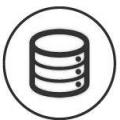Part 1: Introduction to QGIS
Sign up for our weekly newsletter!
This is an archive of our past training offerings. We are looking to include workshops on topics not yet covered here. Is there something not currently on the list? Send us a proposal.
R FUN!damentals Part 2: Subsetting and Reshaping
This three-part series will cover the following materials:
Part 1: Introduction
Geospatial data are an important component of social science and humanities data visualization and analysis. The R programming language is a great platform for exploring these data and integrating them into a research project.
Geospatial Data in R, part 2: Geoprocessing and analysis
This writing group is for graduate students who are working on projects that incorporate both qualitative data analysis (QDA) software (e.g., MAXQDA, Dedoose, NVivo, and ATLAS.ti) and development of a deliverable, such as a publishable paper, qualifying paper, thesis or dissertation.
This four-part, interactive workshop series is your complete introduction to programming Python for people with little or no previous programming experience. By the end of the series, you will be able to apply your knowledge of basic principles of programming and data manipulation to a real-world social science application.
Part 1 Topics:
This session first provides a brief introduction to qualitative research, including differences (and similarities) between quantitative and qualitative research, overview of the general process, and review of methodologies.
Data are the foundations of the social and biological sciences. Familiarizing yourself with a programming language can help you better understand the roles that data play in your field. Learn to develop and train your data skills at the free D-Lab R workshops!
This three-part series will cover the following materials:
Part 1: Introduction
Geospatial data are an important component of social science and humanities data visualization and analysis. The R programming language is a great platform for exploring these data and integrating them into your research.
Geospatial Data in R, part I: Getting started with spatial data objects
LaTeX is a widely used document creation software which can help you improve the presentation of homework, papers, academic articles and even presentations.
LaTeX is a widely used document creation software which can help you improve the presentation of homework, papers, academic articles and even presentations.
In Visualization in Excel, we will cover the fundamentals of visualization in Excel, including a checklist of considerations that should go into every visualization. We will also go through step by step instructions on how to make horizontal bar charts, slope graphs, butterfly charts, the good kind of pie charts, icon arrays, and how to graph confidence intervals.
This class will cover the basics of Excel, from simple formulas (SUM, COUNTIF) to more complex Excel features like Macros and the Data Analysis ToolPak. By the end of both sections, students will be able to employ Excel skills to open source policy data sets. These skills are transferrable to any sector.
Topics Covered Will Include:
This workshop has been cancelled due to instructor illness. This workshop will be rescheduled at a later date. Please keep an eye on the D-Lab newsletter and the QMG email list for the new date/time. Please accept our sincere apologies for any inconvenience this causes.This workshop will focus on organizing, coding, and analyzing qualitative data using Dedoose.
This class will cover the basics of Excel, from simple formulas (SUM, COUNTIF) to more complex Excel features like Macros and the Data Analysis ToolPak. By the end of both sections, students will be able to employ Excel skills to open source policy data sets. These skills are transferrable to any sector.
Topics Covered Will Include:
The workshop will be an intensive two-day introduction to R using RStudio. After the first morning session, the workshop will be split into two separate tracks. Topics will include
This is a five-part series for qualitative researchers, new and experienced, who are interested in using qualitative data analysis (QDA) software to facilitate their studies. This workshop will focus on teaching MAXQDA, a QDA software for which D-Lab offers substantive support.
This four-part, interactive workshop series is your complete introduction to programming Python for people with little or no previous programming experience. By the end of the series, you will be able to apply your knowledge of basic principles of programming and data manipulation to a real-world social science application.







